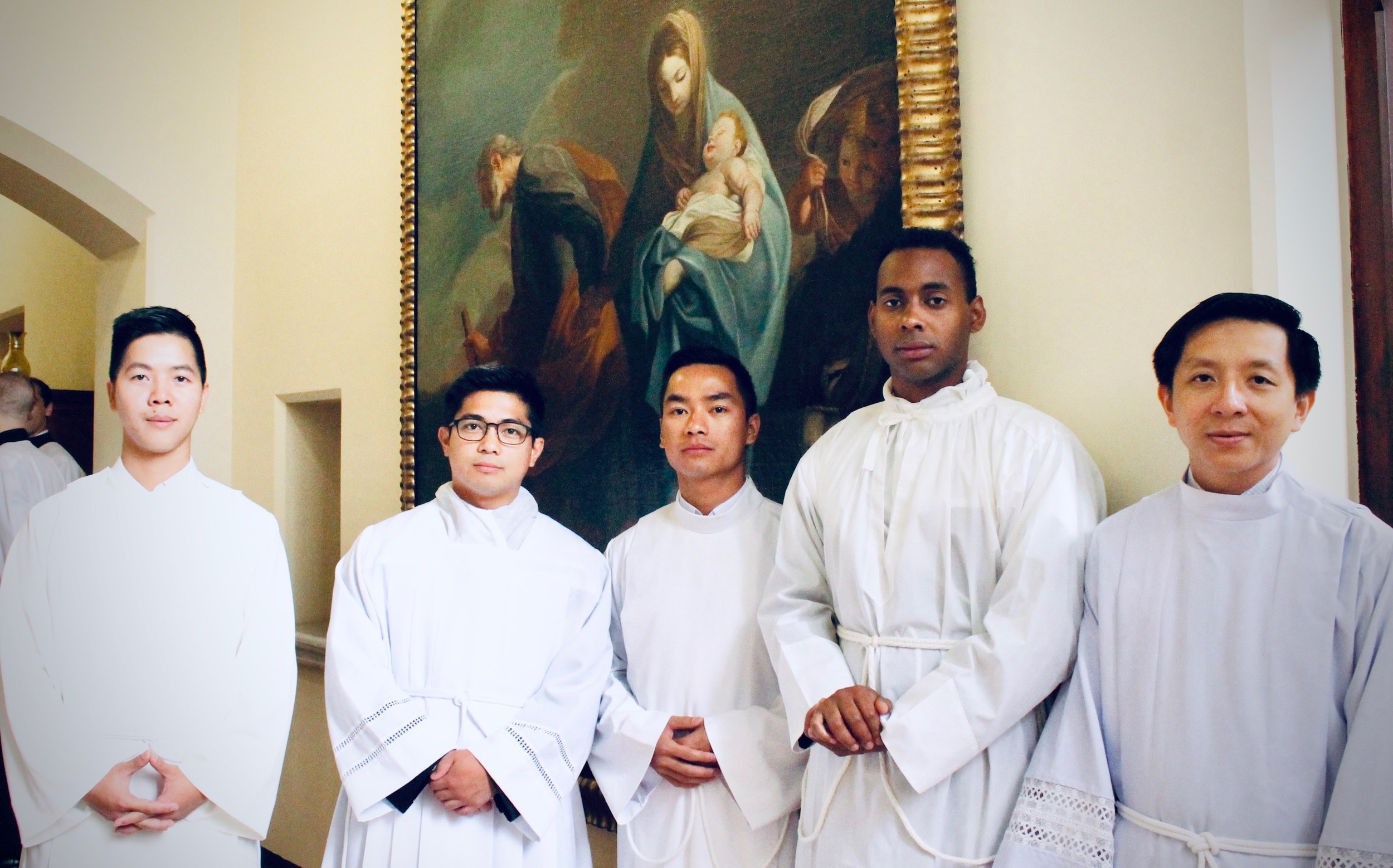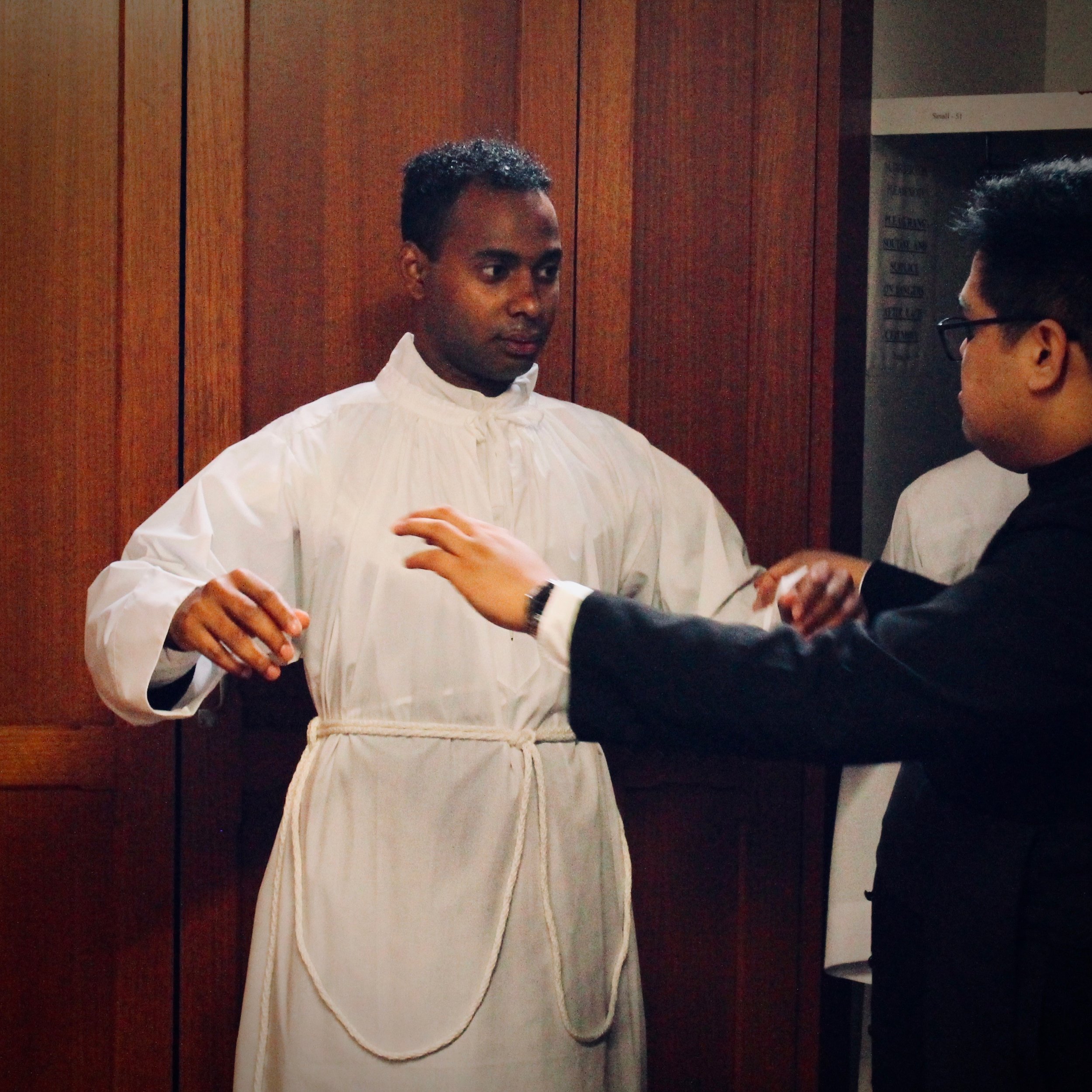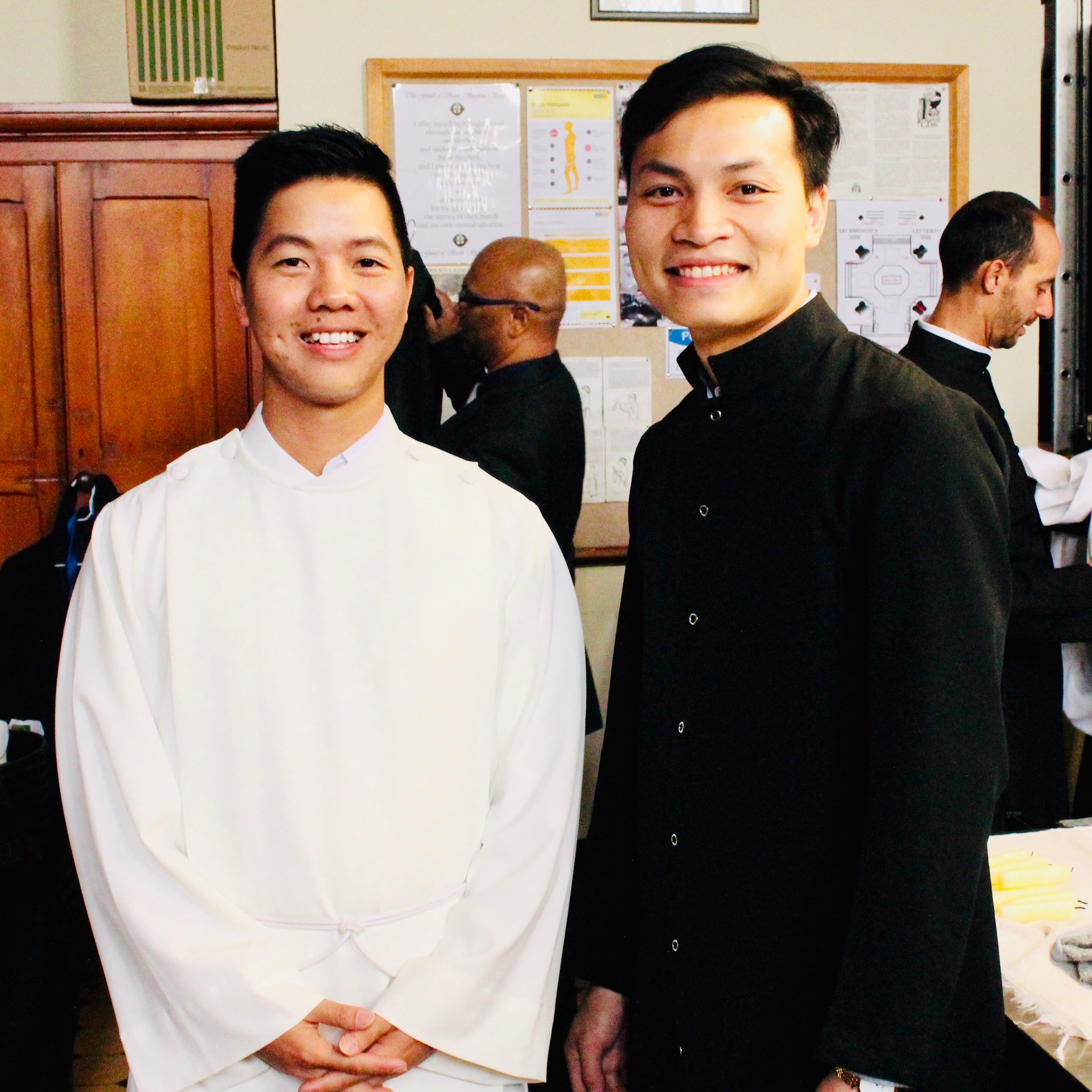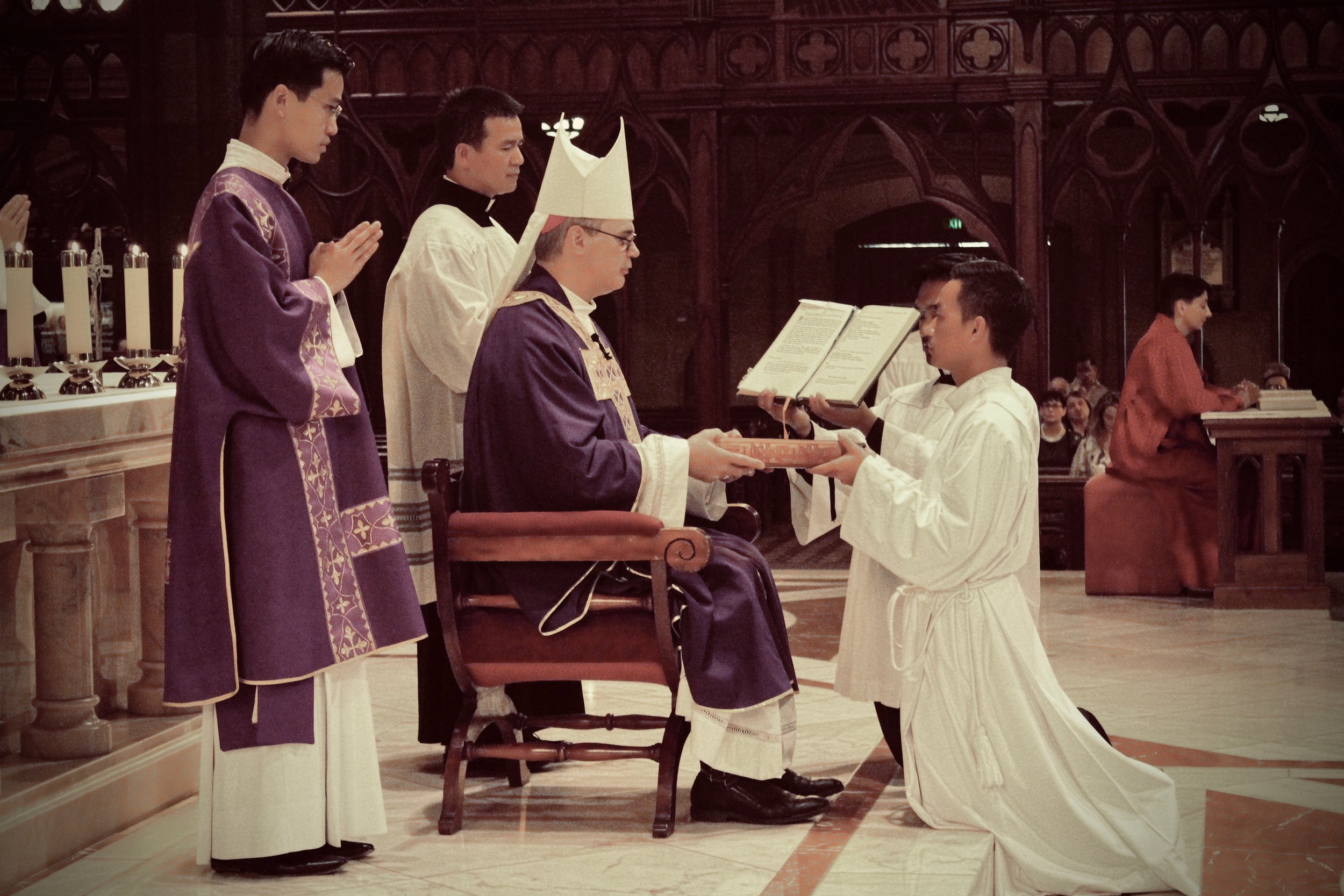By: William Lowry
On the First Sunday of Lent at St. Patrick’s Cathedral Melbourne, five men were instituted in the ministry of Lector (reader).
This was a beautiful ceremony presided over by Archbishop Peter Comensoli, which included a number delightful moments, such as, but not limited to his directive at the conclusion of mass to the seminarians, to spread out and greet those to whom we shall be serving. It was a wonderful expression, and summation of what ministry is really about: service.
Within the life of the seminarian, on his journey to priestly ministry, he will be instituted in two particular ministries within the life of the Church, that of Lector (reader) and Acolyte. In the church over the recent decades there has been a renewed understanding of the role of liturgical ministries, particular in relation to the role of all the faithful, of whom “Mother Church earnestly desires… full, conscious, and active participation in liturgical celebrations which is demanded by the very nature of the liturgy.” (Sacrosanctum Concilium, n.14)
All Christian people are called by virtue of their baptism “a chosen race, a royal priesthood, a holy nation, God’s own people,” and ordered, by word and deed to “proclaim the mighty acts of him who called [us] out of darkness into his marvellous light” (1 Pt 2:9) (SC n.14). Some confusion however, has arisen about the function of these ministries in the life of the Church.
St Pope Paul VI in his apostolic letter Ministeria Quaedam (1973), which abrogated the sub-diaconate and some minor orders; speaks of the adaptable nature of ministries within the life of the church and how their function has been preserved in varying forms since ancient times. These roles that had over time have taken a preparatory role in the formation of priests, in our times “have also been exercised by the laity”(Ministerium Quaedam). Whether these ministries are exercised by the laity in their respective parishes, or by those instituted in a particular way in anticipation for Holy Orders, both are called to exercise their ministry responsibly and educate themselves in the requisite functions needed in the fulfilment of their ministry.
The book of the Gospels
This is exposited most clearly in the apostolic letter, as it lists the Lectors function “to proclaim the readings from Sacred Scripture, except for the gospel in the Mass and other sacred celebrations… instruct the faithful for the worthy reception of the sacraments” etc (MQ). Not only are they gifted with the opportunity to proclaim God’s word, they are also called to express publicly that relationship which they themselves have fostered by meditating “assiduously on Sacred Scripture” (MQ).
The lector, is called “in proclaiming God’s word to others,” to conform himself more particularly to Holy Writ in “obedience to the Holy Spirit” (Roman Pontifical, n. 4). After the homily the Bishop spoke in the rite, these beautiful words to the then candidates, “meditate on it constantly [God’s word], so that each day you will have a deeper love of the Scriptures, and in all you say and do show forth to the world our Saviour, Jesus Christ” (RP, n.4). Whilst these men were called in a particular way to this proclamation by virtue of this particular ministry, all those who minister already in these liturgical functions are called to the same dedication and care in their roles.
We urge that you pray for these men, that they may proclaim the Word with missionary zeal, and that it may foster in the hearts of its hearers a greater love of the precious Godhead. I pray also that those who are called to serve in their respective ministries may remember the importance of their role and the harm that can be caused in its dereliction, ensure that you meditate on the readings before professing them, and proclaim them from the ambo, the classroom or the street corner with enthusiasm and gumption, so that in all places the Most Holy Trinity may find praise.
Archbishop Peter Comensoli’s words
to the candidates:
Brothers,
The Letter to the Hebrews tells us that:
The word of God is living and active, sharper than any two-edged sword piercing to the division of soul and of spirit, of joints and of marrow, and discerning the thoughts and intentions of the heart (Heb 4.12). You are about to receive the responsibility of wielding this sword for the good of God's People. You are not given this ministry for your own benefit, as if it is something you can possess as a badge of entitlement. Rather it is something entrusted to you as a steward. It's a sharp instrument, the Word of God, so be careful with how you wield it. Do not use this Word to cut God's people indiscriminately, leaving them wounded. Instead, handle it delicately, carefully, precisely, and according to God's purpose, not your own. May the Word of God that you proclaim cut through for the sake of healing. And may this same Word -made flesh in Jesus Christ-pierce through to the thoughts and intentions of your own hearts.
Lectors Peter Nguyen, Tien Tran, Allan Aclan, An Hoang Le and, Jean-Sebastien Gery with Archbishop Peter Comensoli (centre).
Photos: William Lowry & JC Napoles










